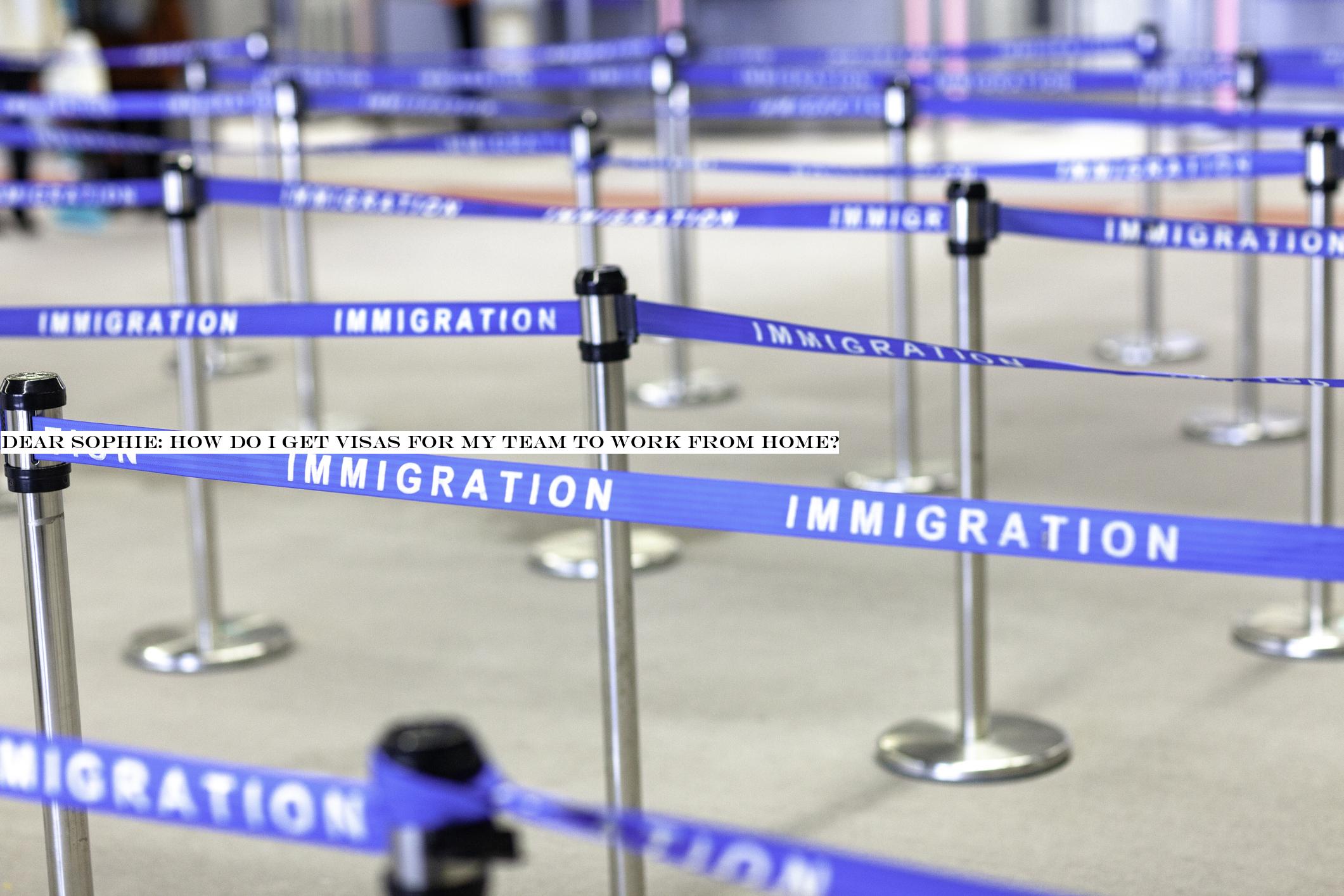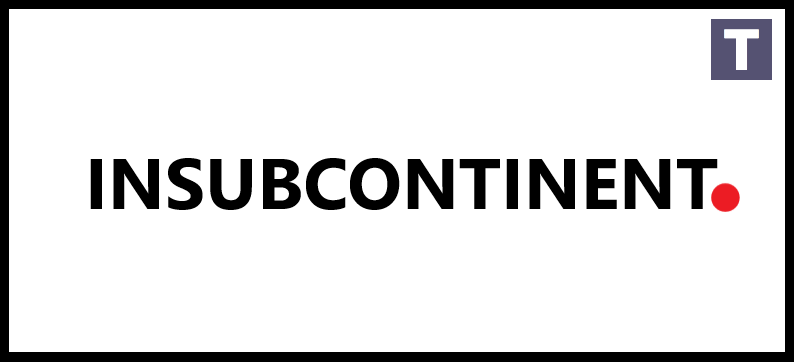Music
Trailers
DailyVideos
India
Pakistan
Afghanistan
Bangladesh
Srilanka
Nepal
Thailand
Iraq
Iran
Russia
Brazil
StockMarket
Business
CryptoCurrency
Technology
Startup
Trending Videos
Coupons
Football
Search
Download App in Playstore
Download App
Best Collections
Technology

Hereanother edition of &Dear Sophie,& the advice column that answers immigration-related questions about working at technology companies.
&Your questions are vital to the spread of knowledge that allows people all over the world to rise above borders and pursue their dreams,& says Sophie Alcorn, a Silicon Valley immigration attorney. &Whether you&re in people ops, a founder or seeking a job in Silicon Valley, I would love to answer your questions in my next column.&
&Dear Sophie& columns are accessible for Extra Crunch subscribers; use promo code ALCORN to purchase a one or two-year subscription for 50% off.
Dear Sophie:I sent my startup team home to work remotely for several weeks. We have several folks on visas and work permits — am I supposed to do anything special for them? Can I proactively get visas for future employees to primarily work from home?
— Burrowing in Burlingame
Dear Burrowing,
- Details
- Category: Technology Today
Read more: Dear Sophie: How do I get visas for my team to work from home
Write comment (92 Comments)Lime is pausing its electric scooter operations in California and Washington, as well as throughout the countries of Italy, France and Spain to help keep riders safe during the COVID-19 pandemic.
&Like you, we are worried about the cities we love and call home, the people we serve, and our colleagues on the ground,& Lime wrote in a blog post today. &Loving cities means protecting them too. For now, we&re pausing Lime service to help people stay put and stay safe.&
The announcement came a day after San Francisco ordered residents to shelter in place, and shortly before New York City told residents to prepare for a shelter-in-place order.Lime will continue operating in other markets but says it has enhanced its cleaning and disinfecting methods.
Spin, on the other hand, is choosing not to suspend its service in San Francisco, unless the city explicitly asks it to. Thatbecause it imagines the public transportation system will need support as people are taking essential trips to places like the grocery store or pharmacy.
&During this challenging time in our nation and in light of the CDCguidance to avoid public transportation to limit exposure to COVID-19, we believe that Spin scooters can be another safe and reliable option,& Spin CEO Derrick Ko said in a statement. &To the extent that it is safe for our employees, we plan to work with the City to determine how best we can support the Citydesire and needs for continued safe operations of essential transportation, from rides to grocery stores and pharmacies to medical care and testing facilities.&
In a letter to the San Francisco Municipal Transportation Agency yesterday, Ko outlined how Spin is ready and able to work to support healthcare workers, sanitation workers and other workers who may benefit from its scooters. Currently, Spin is more frequently disinfecting scooters and also encouraging riders to disinfect the handlebars before and after their ride. As for Lime, it says it will keep riders in the loop regarding when it will redeploy its scooters.

- Details
- Category: Technology Today
Read more: Lime pauses scooter operations in select markets amid COVID-19
Write comment (96 Comments)A NYC-based startup that developed technology that extracts carbon dioxide from the air and combines it with water to create vodka has redirected its entire production capacity toward producing hand sanitizer, every bottle of which will be donated through collaboration with NYC officials, and potentially to local restaurants who employ delivery personnel providing critical service as social distancing and isolation measures continue.
Air Co. launched its vodka just last year, using a process it developed (which has received awards from NASA and XPrize) that is actually net carbon-negative. It involves pulling around one pound of carbon dioxide from the air which is then combined with water and turned into pure ethanol using solar-based renewable energy. Ethanol also happens to be the key active ingredient in hand sanitizer, which is generally between 60% and 95% alcohol in its most effective iterations.
Air Co.CEO and co-founder Gregory Constantine told me via email that because the company was founded on the basis of fulfilling a mission of social good, the startup wanted to find some way to help with community efforts to counter the ongoing coronavirus pandemic. It naturally turned to producing hand sanitizer made up 70% ethanol, its technologyprimary output.
The company isn&t looking to cash in on the current (ill-advised) panic-buying trends, which see supplies of hand sanitizer sold out or dwindling across major retailers and Amazon . Instead, even though itnow directing 100% of its production capacity to making hand sanitizer, italso donating all of the volume it produces.
While Constantine says that initially they&ve been producing smaller volumes than they&d like, and are looking at ramping production by shifting their methods, they&ve still managed to put out more than 1,000 50mL bottles, and will &continue to make 1,000 bottles per week and push supply as much as our technology allows us to.&
I asked Constantine how they&re figuring out who receives the hand sanitizer they&re donating, given the many possible parties who would appreciate this kind of charitable action.
&We&re going to be directly supplying all donations at the advice of the city,& he said. &We are also looking to work with local restaurants to have them provide food delivery drivers with our sanitizer given that bars and restaurants have had to shut their doors to patrons, leaving delivery services at the forefront of food services here in New York City.&
Given that they have shifted production away from their revenue-generating business for this effort, I also asked Constantine how long they plan to keep this up. Despite uncertainty about how long the need will exist, he said, they&re going to try to continue producing the sanitizer &for as long as [they] can.&
&We have shifted our production and are running on a very limited team to ensure that we are not furthering the spread of the virus in our efforts,& he added. &Every small piece of help from any person or business goes a long way in a time of need like this, and we plan to help however we can.&

- Details
- Category: Technology Today

With the explosive popularity of B2B services startups, it was only natural that a B2B startup would come along thatoffering a service to help startups become enterprise services themselves.
WorkOS, which is launching out of stealth with seed funding from Lightspeed Venture Partners and others, is building a toolkit to help startups meet the requirements for bringing on enterprise clients. The company aims to get startups set up with an API for single sign-on, directory sync, audit trails, role-based access controls and other key services.
As more startups look to approach enterprise from a bottom-up capacity and focus on creating individual use cases, quickly meeting IT administrators& expectations can become a shortcut to higher-margin customers. The inspiration for WorkOS came from its founderprevious email startup, which tried to make a play for enterprise adoption and clients but couldn&t cross what he calls &the enterprise chasm.&
&The feedback I got was, this is a great app but we can&t buy this as a company because you&re not enterprise-ready,& CEO Michael Grinich told TechCrunch in an interview. &Even if you focus on the end user experience, therea different buyer at the end of that tunnel with a different set of needs.&
Becoming enterprise-ready means meeting the same compliance requirements that IT administrators need to adhere to, something that can obviously be an issue for a small startup thatlight on resources. On the security side, Grinich says that WorkOS is currently in its SOC-2 Type 2 observation period and should receive certification in Q2 of this year.
These are uncertain times to be a startup launching publicly, but Grinichdescription of his company as a &highway onramp to get into [enterprise] ecosystems,& seems apt for startups seeking to quickly build out new revenue streams. Right now, WorkOS operates across a few pricing structures, with a free tier that brings users single sign-on support, as well as a $99/mo developer tier and $499/mo corporate tier that scale up WorkOSoffered functionality substantially.
First Round, SV Angel, Abstract Ventures, Tuesday Capital and Work Life Ventures are also backers.
- Details
- Category: Technology Today
Read more: Lightspeed-backed WorkOS launches to help startup services become enterprise-ready
Write comment (94 Comments)
Rocket Lab Electron launch vehicle has received Category 1 certification from NASA, meaning it is authorized for use on more important missions, opening up a whole new revenue stream for the growing launch provider.
The certification was largely based on the success of &This Onefor Pickering& in late 2018, the companyfourth commercial launch, which took a batch of NASA cubesats into orbit as part of the ELaNa-19 mission. This experimental mission was undertaken as part of NASAVenture Class Launch Services initiative to test out newer and smaller launch vehicles using non-critical payloads.
&We have a strong partnership with NASA that was established through the ELaNa-19 launch and continues today with the upcoming CAPSTONE mission that will see our Electron launch vehicle and Photon spacecraft deliver a NASA satellite to lunar orbit next year,& said Rocket Lab CEO and founder Peter Beck in a news release.
Certification categories go from 1-3, from &high risk& to &low risk,& based largely on successful launches, which as you might imagine is something of a catch-22: You need the launches to get the certification, but you need the certification to get the launches. Fortunately, one can break the cycle with non-essential missions like small experimental satellites — which is sort of the purpose of the VCLS program.
NASA also conducts careful inspections of facilities, manufacturing, and all that. NASADarren Bedell, risk manager for the agencyLaunch Services group, noted that &Rocket Labmanagement team are deliberate in ensuring processes are controlled, repeatable, and measurable to ensure mission success.&
Category 2 certification is in process, but is of course even more stringent and requires six consecutive successful missions with the same rocket configuration. Rocket Lab has 10 in a row at present, but therelikely a lot of paperwork involved as well.
The companynext launch is for NASA, the National Reconnaissance Office and the University of New South Wales — window opens on March 27 (local New Zealand time).
- Details
- Category: Technology Today
Read more: Rocket Laboratory obtains NASA certification for official smallsat launches
Write comment (93 Comments)Yesterday, San Francisco Mayor London Breed announced a lockdown for six Bay Area Counties: San Francisco, Santa Clara, San Mateo, Marin, Contra Costa and Alameda. The public health order marks a big step to help reduce the movement of the nearly 7 million people within the Bay Area, as well as the potential transmission of COVID-19.
It is important to note that the mayor, as of today, has not issued a complete and utter lockdown. This means you can still go outside for exercise and leisure, as well as heading to your local grocery store (mine is giving out free flowers to stressed shoppers). You also can order food delivery from your app of choice. Some restaurants are offering food to-go, or if you&re Black Hammer Brewing, crowlers and growlers to-go.
Per the SF Chronicle, bicycling for exercise is fine, as well as driving to hiking trails and beaches for fresh air. I highly recommend a morning stroll at Lands End or Fort Funston. You&ll also catch a good sunset at Bernal Heights or out on one of the numerous piers.
The guidance, if you leave your house, is to remain six feet away from another individual at all times.
After recreational and medical dispensaries were told to halt sales this morning, the San Francisco Department of Public Health tweeted that they can remain in business.
Update: after this story was published the San Francisco Department of Public Health tweeted, saying that dispensaries are &essential businesses& and are open. The story has been updated to reflect this change.
This all in mind, letend on a general note. Be kind, tip well and be thankful for moments of humanity and love in this moment of stress. Everyone is scared, and buying out the storequantity of toilet paper in one go might not be as thoughtful as you think.

- Details
- Category: Technology Today
Read more: Good news, Bay Area, you can still go on a hike (for now)
Write comment (93 Comments)Page 1214 of 1446

 19
19





